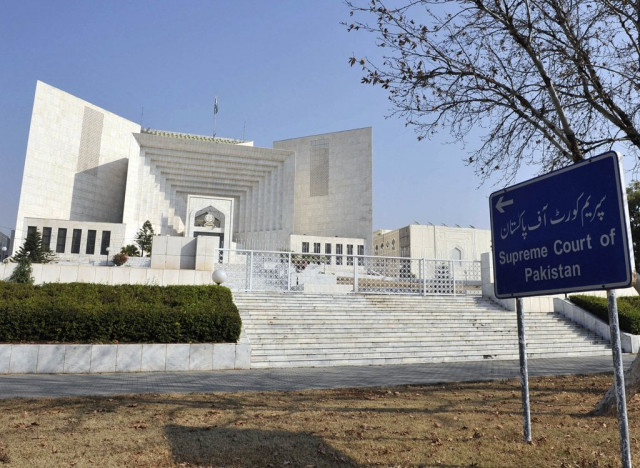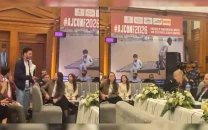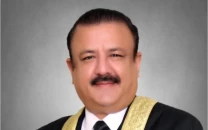ECP can take all steps for fair polls: SC
Top court issues detailed verdict on presidential reference on open ballot

The Supreme Court on Tuesday issued a 386-page detailed verdict on the presidential reference on holding the Senate elections by open ballot.
An SC bench, headed by Chief Justice of Pakistan Gulzar Ahmed and comprising Justice Mushir Alam, Justice Umar Ata Bandial, Justice Ijazul Ahsan and Justice Yahya Afridi, issued a short opinion earlier this year.
In the judgment, the apex court observed that Senate elections would be held under the law and the Constitution and the Election Commission of Pakistan (ECP) could take all steps for transparent polls.
“It is the responsibility of the ECP to eradicate corruption from the electoral process. The commission can also use all options, including technology, to eradicate corruption,” the verdict read.
“The commission has the power to take action against corrupt practices. All executive authorities are bound to cooperate with the commission.”
The top court observed that it was the job of the ECP to determine the extent of secrecy in voting.
“However, the secrecy of voting is not final or permanent.”
Explaining the reasons, the SC noted that that the president had sought the court’s opinion on the Senate elections.
The Supreme Court has advisory jurisdiction under Article 186 of the Constitution.
Read More: ECP to seek ministries’ help for new constituencies
Under Article 186, it added, the president could seek legal opinion from the Supreme Court.
“Under Article 226 of the Constitution, all elections except for that of the prime minister and the chief ministers would be secret. There can be no other legal interpretation of Article 226.”
The court noted that according to Article 122/6 of the Constitution, Senate elections would be held by secret ballot.
“According to Article 220 of the Constitution, parliament has the power to legislate on corruption and other crimes.”
The apex court further noted that Article 220 prevented parliament from enacting a law on the withdrawal of powers from the ECP or its commissioner.
According to Article 220, the federal and provincial executive authorities are bound to assist the ECP.
The SC observed that it had given its opinion on giving the right to vote to overseas Pakistanis in 2013 which had three issues: First, the 1976 Act could be amended to give overseas Pakistanis the right to vote, while the ECP may sign memorandums of understanding (MoUs) with other countries.
The commission could seek the opinion of the Foreign Office to sign the MoUs.
Secondly, opinion could be sought from the IT ministry or experts to give overseas Pakistanis the right to vote.
The SC noted that applications for granting voting rights to Pakistanis abroad have been pending in the top court since 2011 and the matter had already been referred to the ECP.
“Time has been given but nothing has been done except considering a few suggestions from the commission,” it added.
The court observed that the difficulties faced by overseas Pakistanis could be resolved through the concerted efforts of the Foreign Office, law ministry, the National Database and Registration Authority (NADRA) and other authorities.
Justice Yahya Afridi his dissenting note wrote that the opinion of the Supreme Court was final and dissent had always been part of democracy.
“There are always difficult times in the lives of nations, and there are occasions when the political system is disappointing,” he added.
“However, disappointment with the political system does not mean that the court can provide a better solution. The function of the courts is not to interfere in the [working of] other state institutions.”
He added that the job of a court was only to resolve legal questions and points. “The task of correcting mistakes should be left to the elected majority instead of the court.”
Home vertical sub 3 and pak


















COMMENTS
Comments are moderated and generally will be posted if they are on-topic and not abusive.
For more information, please see our Comments FAQ